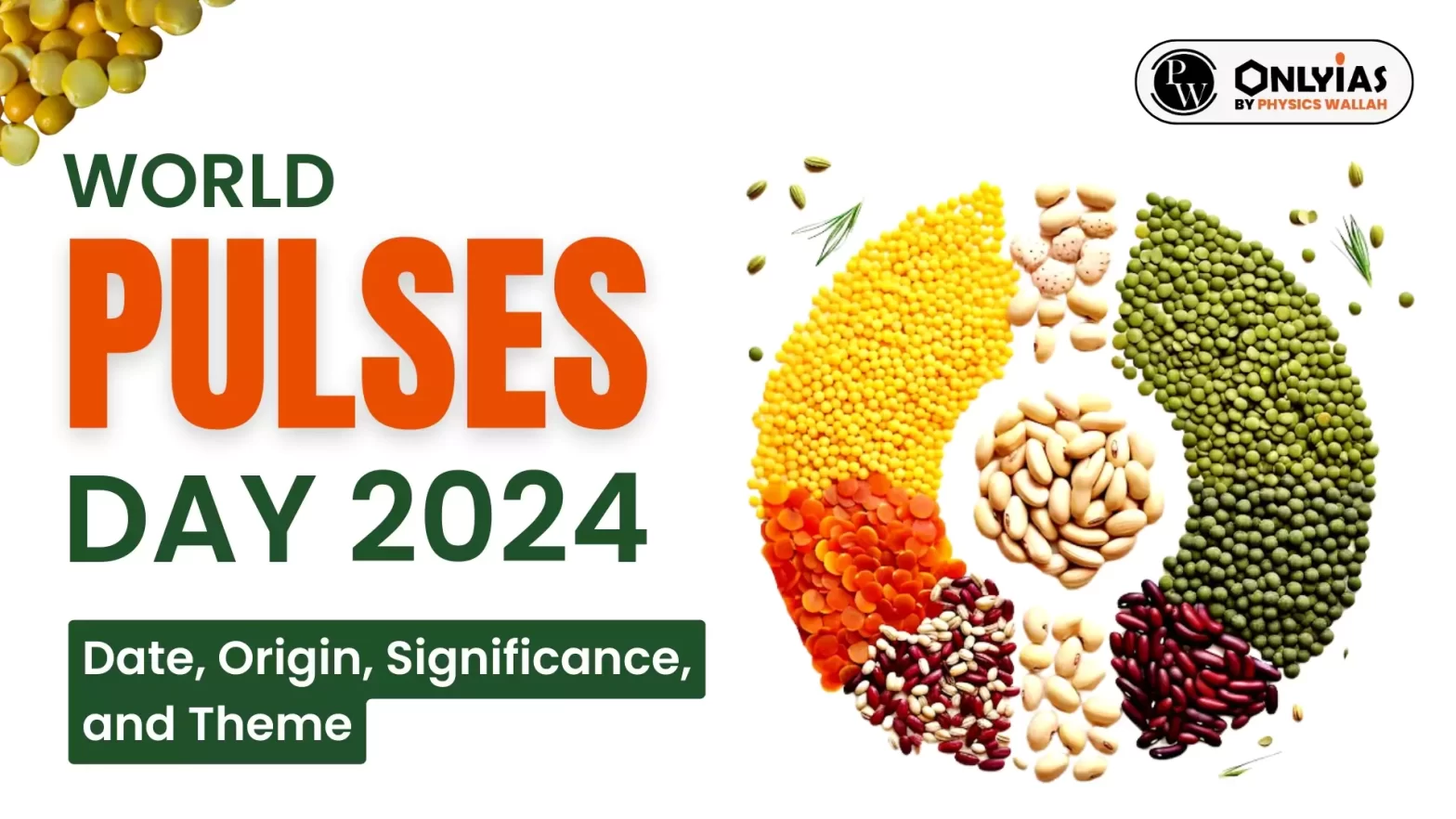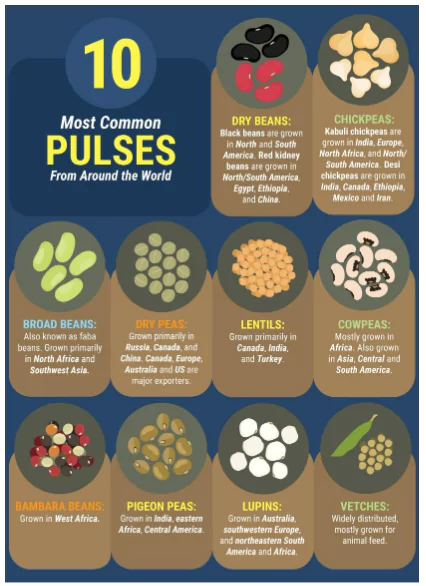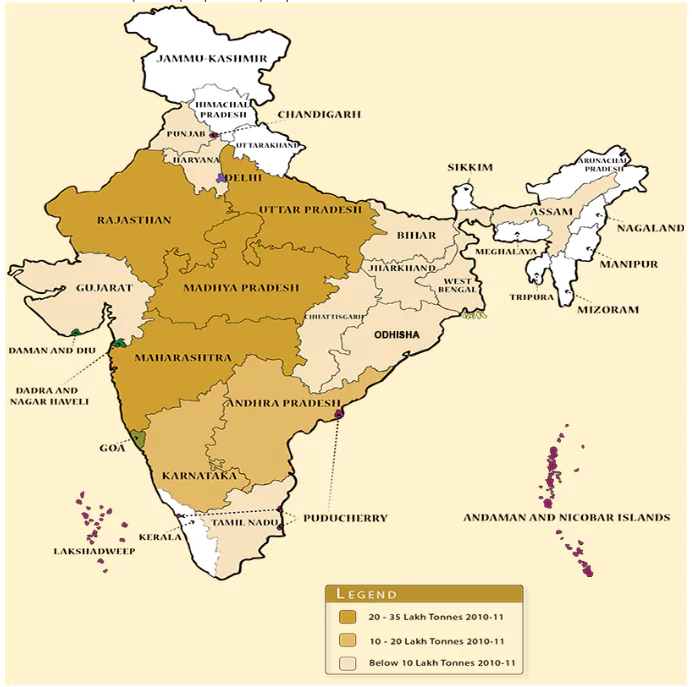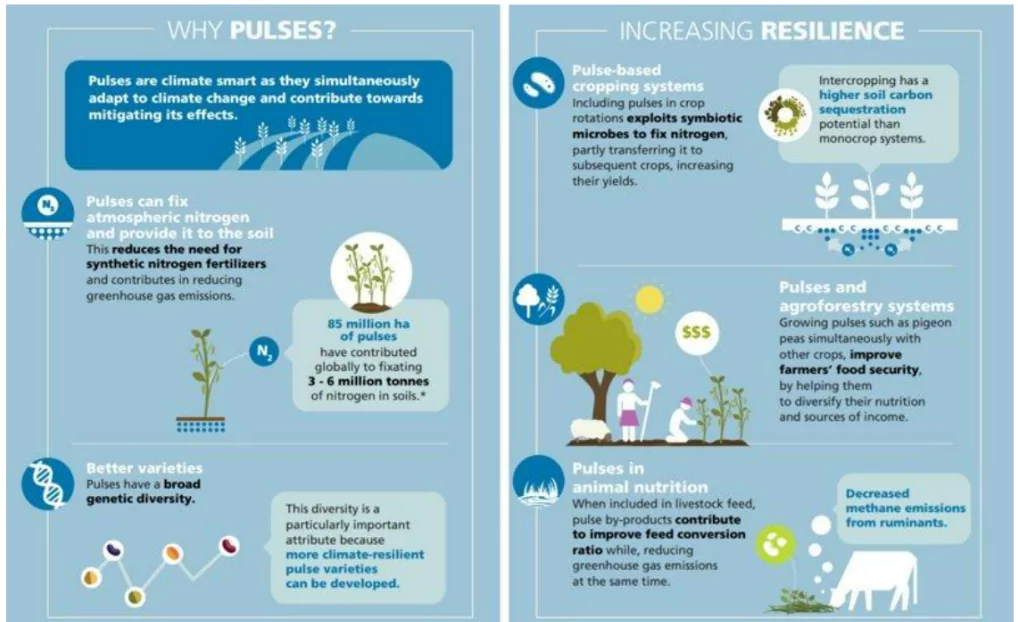World Pulses Day is celebrated across the globe on 10th February. Theme of world pulses day 2024 is “Pulses: nourishing soils and people”.

On February 10th we celebrate the World Pulses Day 2024, whose theme is nourishing soils and people.


Map: Major Pulses Producing States In India (Source: GoI)

| Must Read | |
| NCERT Notes For UPSC | UPSC Daily Current Affairs |
| UPSC Blogs | UPSC Daily Editorials |
| Daily Current Affairs Quiz | Daily Main Answer Writing |
| UPSC Mains Previous Year Papers | UPSC Test Series 2024 |
World Pulses Day is celebrated across the globe on 10th February.
In 2013, the United Nations General Assembly adopted a resolution (A/RES/68/231) to proclaim 2016 as the International Year of Pulses (IYP). After the tremendous success of the International Year of Pulses, the crops’ potential was recognized to further achieve the 2030 Agenda for Sustainable Development. With its relevance to given to Sustainable Development Goals 1, 2, 3, 5, 8, 12, 13 and 15, the United Nations General Assembly (UNGA) officially declared the World Pulses Day in 2019.
The theme for World Pulses Day 2024 is “Pulses: nourishing soils and people”.
The World Pulses Day is used as an opportunity to spread awareness on the importance of pulses crops, especially nutritional value, food security, and environmental benefits.
Pulses are a diverse sub-group of legume crops that include lentils, chickpeas, beans, and peas. Most common consumable pulses include dried beans, lentils and peas. Pulses do not include crops that are harvested green.
India is the largest producer of pulses at 25%. India is followed by Canada (9%), China (6%) and the European Union (5%) as the next largest producing countries.
Chickpea (48 %), Pigeon Pea (14 %), Black Gram (12%), Green Gram (8%) and Lentil (7%) constitute the majority of pulses produced in India.
Around 75 per cent of total pulse production is concentrated in the states of Madhya Pradesh (29.67%), Maharashtra (14.66 %), Rajasthan (13.57 %), Uttar Pradesh (9.03 %) and Karnataka (7.60 %).
Even though pulses are grown in both Kharif and Rabi seasons, Rabi pulses contribute more than 60 per cent of the total production.

<div class="new-fform">
</div>